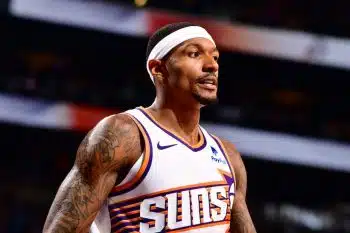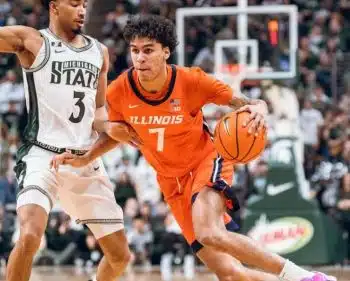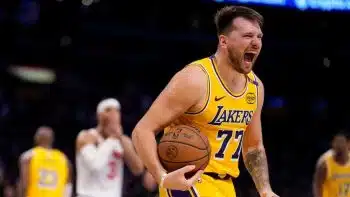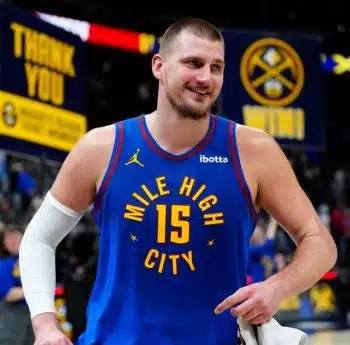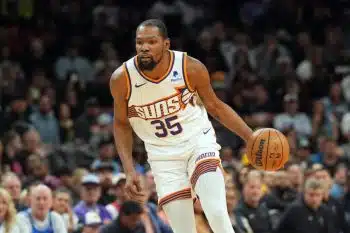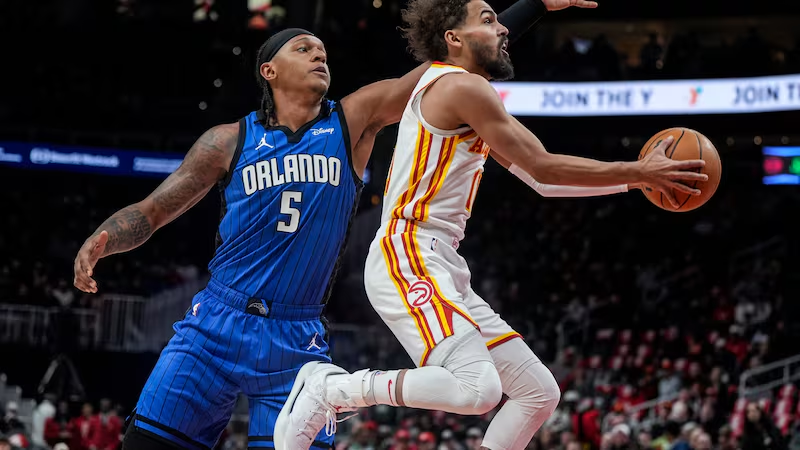NBA
NBA Sunday: Reggie Jackson is a Keeper
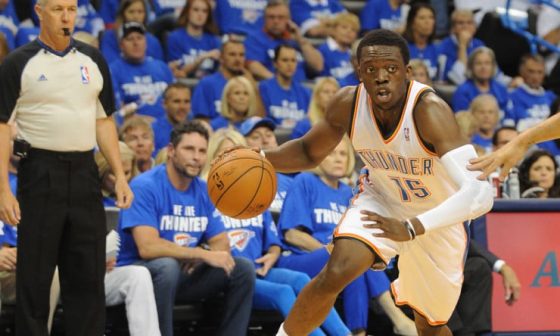
Let’s play make believe.
You’re a standout free agent who has played 10 years in the league. Let’s say you’re 29 years old and seeking a maximum contract.
You get the meeting you coveted with the team of your dreams and have an opportunity to ask the owner one question before you sign on the dotted line and commit yourself to spending the next four years with this franchise.
What do you ask?
My question would be simple.
Do you value winning a championship more than your bottom line?
I wonder if Kevin Durant asked general manager Sam Presti that question and I wonder if he was able to pose it to Clay Bennett.
And if they told him that winning was the most important thing, I wonder how they can look at him with a straight face as the team seemingly repeats their James Harden history with Reggie Jackson.
So, I ask you, winning, or greenbacks?
Players are posed with this dilemma all the time, thanks to the NBA’s new (albeit soon expiring) economic model that encourages them to accept less than their market value so that their team, in theory, can spend elsewhere in pursuit of championship glory.
If the Thunder followed that edict, they would have re-signed Harden when they had the opportunity and be poised to overthrow the San Antonio Spurs this year (if they hadn’t, by this point).
Instead, as I have been told, the Thunder drew a line in the sand with Harden, putting their budget above keeping one of the three players responsible for the team winning the Western Conference in 2012. Just imagine, four months after having what appeared to be one of basketball’s upstart, homegrown, potential dynasties, the Thunder willingly broke it up because they were not willing to pay Harden the maximum allowable under the collective bargaining agreement.
Some may call it business. I’ll call it dumb.
The Thunder traded Harden and received a package centered around Kevin Martin. Martin played 77 games for the team in 2012-13 before being signed-and-traded to the Minnesota Timberwolves in a maneuver that saw the Thunder take back no immediate salary on its ledger.
As part of the Martin trade, the Thunder also received future draft picks, one of which became Steven Adams. Already, we know that Adams is talented enough to be a starter in this league and he is just another of the many bright spots for the Thunder’s scouting department.
All that appears to mean, though, is that there will be yet another youngster with whom the Thunder must decide to either invest or divest.
After the Harden fiasco, can someone please explain what in the world are they doing with Reggie Jackson?
As it stands, the Thunder have until October 31 to reach an extension agreement with him, otherwise, the team can make him a restricted free agent in July 2015. With Jackson’s emergence since the team traded Harden and his admirable performance during the 2013 playoffs where he started in the absence of Russell Westbrook, the bottom line is this: a team that wishes to win a championship in today’s NBA simply cannot afford to continue to allow young talent to walk out through the door.
Granted, there may be some long-term concerns over how well Jackson and Westbrook would mesh in the backcourt for the Thunder, especially as full-time starters. There are also concerns about whether or not, like Harden, Jackson is content with willingly taking on a permanent, third-fiddle role behind Westbrook and Durant.
But, like Harden, if the Thunder open up their checkbook, they could have a player that they seem to need, and one whom they especially need now due to the extended absence of Durant.
In all likelihood, you will see Thanksgiving turkey and pumpkin pie before you see Durant on an NBA floor once again, only furthering the apparent need to re-sign Jackson.
Yet still, here we are, Jackson is unsigned, just like Harden was.
It’s deja-vu, all over again.
——
Odds are, if you own an NBA franchise, it is because you are an astute businessman and understand simple concepts such as risk-reward and return on investment. Invariably, front offices and NBA players and agents will have financial arguments and disagreements—it comes with the territory. However, what we do often see in this league is the success of a front office causing hubris.
Case in point: deep down inside, the reason why the Thunder are willing to play hard ball with Jackson is probably because they see him as a career sixth man who effectively plays both ends of the floor. They probably see him as an important part of their team’s culture and identity, but they probably do not see him as a diamond in the rough. They do not see him as irreplaceable.
Just like they didn’t see that in James Harden. Whether they were correct or not still remains to be seen, but they certainly have not achieved as highly since Harden was dealt to Houston.
As for the front office in Oklahoma City, when you become good at something—scouting and drafting players in this case—your confidence may eventually get the better of you. If you are Presti and the Thunder, your drafting acumen may have you believe that, deep down inside, you can scour the ranks and find another player to play the role of Jackson. If you did feel that way, you wouldn’t necessarily be incorrect. Logic would be on your side considering the Thunder have consistently scored with their draft picks. Aside from the obvious Durant and Westbrook selections, we can immediately cite Harden, Jackson, Adams and Serge Ibaka as positive statistics.
The problem with that approach, however, is two-fold.
The first and most basic is time. The clock is ticking on both Durant and Westbrook. Because they rose up as contenders at such an early age, it is difficult to believe that Durant and Westbrook are only each about 26 years old. Health permitting (which is a whole different story, all together), the two should have a long period of time with which they can compete for championships. However, as the Thunder have seen first hand, injuries can have a way of disturbing that.
In the NBA, tomorrow is not promised.
If a team has the goods and the personnel, the best course of action is to lock up the pieces that you have, put your chips in the middle of the table and go for it.
It is true, in the grand scheme of things, Jackson may be a replaceable player—it may not be too difficult to draft a player who has his virtues with a mid-to-late first round pick.
However, seldom do we see NBA players walk into the league and light it up from the very beginning. There have been exceptions to this rule, but even Durant himself took a few years to come into his own. Kobe Bryant spent the first two years of his career coming off the bench, mind you.
In other words, if you are the Thunder and you are depending on finding the third (or fourth) cog of your championship dreams to come to you via the draft, odds are, you will be waiting for him to mature as a professional, for at least a few years.
Do Durant and Westbrook have the time? Do they have that patience? Could they stomach losing Jackson after also losing Harden? Seeing a talented teammate walk away is a gut-punch to any NBA superstar who hopes to win a championship. Players know when their teams have taken a step back and losing Harden, for the Thunder, was a major step back. Two years later, they are still looking to replicate their success.
The second issue is alpha-male syndrome.
One striking similarity between both Harden and Jackson is that they both want to be starters in the NBA, and they both have the talent to be starters. Asking a young player to sacrifice himself, his livelihood, his legacy and his personal goals is a difficult thing, and it is especially difficult for a player who is entering the league to fulfill what he believes is (or can be) his destiny. From the day a player is drafted, he is thinking about life after his rookie contract. The dream and goal for most players entering the league is to secure a five-year, maximum extension when they are eligible.
Being drafted to a team like the Thunder or Spurs gives you zero chance at fulfilling that. Some young players who think that highly of themselves and their potential may have trouble accepting that and putting their team first. It may cause locker room disharmony; it has in the past.
For a youngster coming into the league—one who is playing for his family’s financial security and is in a career with a finite time limit—asking him to subjugate his personal want to be great is a big ask and drafting him, even if he has the talent, is a big risk. In fact, the elevated talent makes him an elevated risk.
In the end, finding a player that has both the personality-type and the necessary talent level to both play that third fiddle role but simultaneously be good enough to be the third best player for a championship team—that is quite difficult.
The Thunder found that player in Harden, who was willing to remain in Oklahoma City, and they seem to have found another in Jackson. The prevailing belief amongst their front office is probably that they can continue to find those players.
Maybe they are correct, but thinking so is a gamble and frankly, it’s a gamble that the Thunder need not and would be wise to not make.
——
Even as the Thunder enter the 2014-15 season with Durant on the sidelines and LeBron James back in Cleveland, an opportunity at a championship awaits. The Los Angeles Clippers, Portland Trail Blazers and Golden State Warriors are amongst the teams out West that will attempt to topple the San Antonio Spurs. Doing so will be no easy task, but doing so will require a hefty investment in terms of acquiring and retaining talent. If you want to win in this increasingly competitive league—especially as a Western Conference team—you’ve simply gotta open up your checkbook.
The NBA is full of young players who are either getting paid (Chandler Parsons comes to mind), soon to be getting paid (think of Kyrie Irving) or will be getting paid (Damian Lillard).
Jackson may not be of their caliber, but he is certainly a keeper.
Unfortunately, as some teams become more successful, they attempt to cut costs while maintaining the same level of success. The Miami HEAT did just that by amnestying Mike Miller and effectively replacing the traded Joel Anthony with Greg Oden. How’d that work out?
The two aforementioned players could have potentially been the difference between the HEAT accomplishing the three-peat and James opting to return for his final year in Miami.
What may have only been a few million dollars now could have led to many more millions later, not to mention the potential championship(s) and ensuing glory.
Had the Thunder bitten the bullet and given Harden what he wanted, they may have been champions by now.
Instead, back in 2012, fresh off the an appearance in the NBA Finals, the Thunder made an abrupt decision to irreversibly alter their core and they did it to protect their bottom line.
Now, four years later, as the clock ticks down on Jackie’s extension expiration date and the potential for him to hit the restricted free agency market in July becomes more realistic, history may very well be repeating itself.
It just happens to be the type of history that wiser men would learn from, not allow to repeat.
